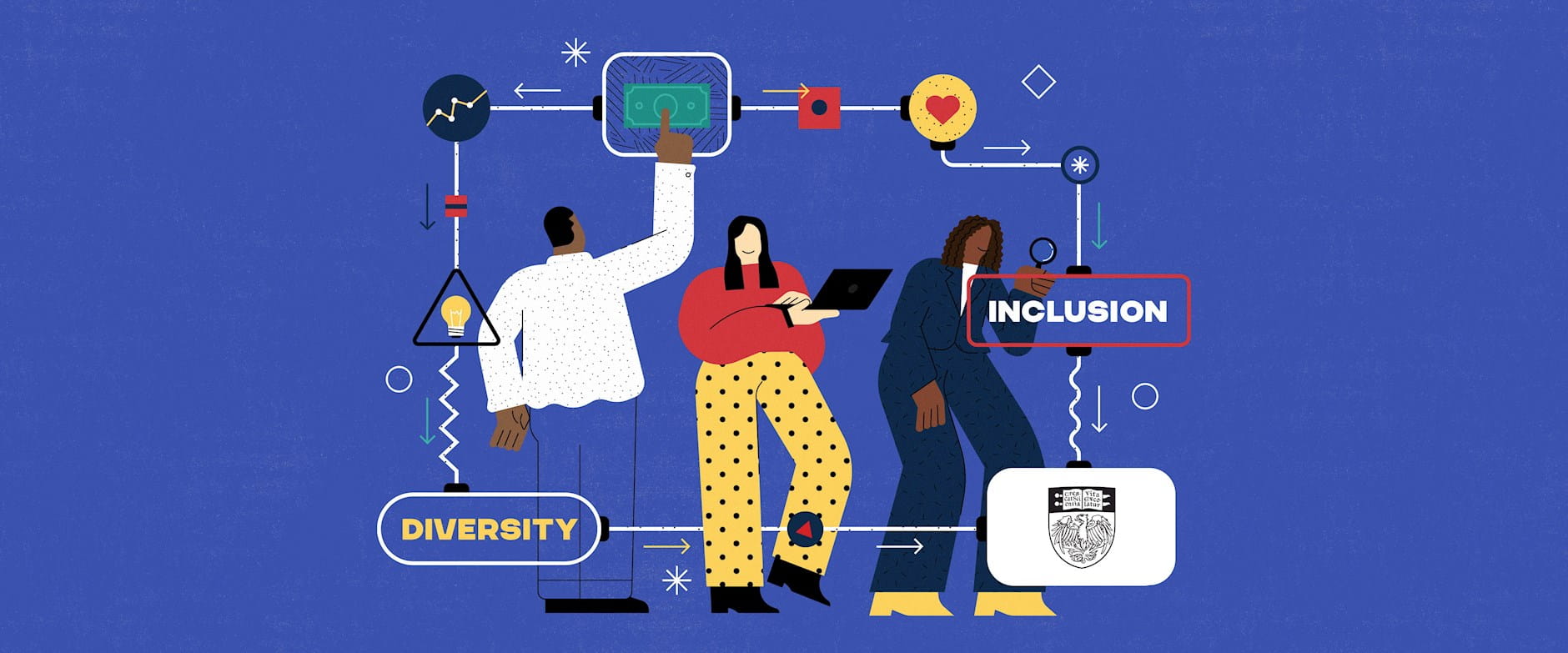
In Good Health
Alumni and students explain their passion and preparation for a career in healthcare.
In Good Health
This website uses cookies to ensure the best user experience.
Privacy & Cookies Notice
Accept Cookies
|
NECESSARY COOKIES These cookies are essential to enable the services to provide the requested feature, such as remembering you have logged in. |
ALWAYS ACTIVE |
| Accept | Reject | |
|
PERFORMANCE AND ANALYTIC COOKIES These cookies are used to collect information on how users interact with Chicago Booth websites allowing us to improve the user experience and optimize our site where needed based on these interactions. All information these cookies collect is aggregated and therefore anonymous. |
|
|
FUNCTIONAL COOKIES These cookies enable the website to provide enhanced functionality and personalization. They may be set by third-party providers whose services we have added to our pages or by us. |
|
|
TARGETING OR ADVERTISING COOKIES These cookies collect information about your browsing habits to make advertising relevant to you and your interests. The cookies will remember the website you have visited, and this information is shared with other parties such as advertising technology service providers and advertisers. |
|
|
SOCIAL MEDIA COOKIES These cookies are used when you share information using a social media sharing button or “like” button on our websites, or you link your account or engage with our content on or through a social media site. The social network will record that you have done this. This information may be linked to targeting/advertising activities. |
|

Errata Carmona
One sleepless night at 3 a.m., Yaoyao Wang, ’15, was inspired to write a personal essay about her family’s journey from China.
“My mom got a scholarship to attend graduate school in the US. It had ripple effects for my entire family,” she says. “I wanted to show what happens when you invest in education for people who might not have been able to afford it.”
Wang understands how cost-prohibitive business school can be for Black, Latinx, and other underrepresented candidates. It’s just one reason she got involved in Chicago Booth’s Diversity and Inclusion Alumni Task Force.
Established in fall 2020, the task force was made up of a group of alumni volunteers who formed three committees focusing on admissions, alumni engagement, and fundraising, and dedicated six months toward the effort. Wang worked as a member of the Fundraising Committee.
“Anything we can do to remove barriers for groups with less generational wealth to apply would be extremely helpful,” she wrote to alumni in her outreach emails, sharing her personal essay. She signed on new donor after new donor.
Wang and eight other alumni volunteers were hard at work raising money for Booth’s two new annual D&I funds: one for scholarships for underrepresented groups, and the other for enhancing diversity and inclusion programs on campus.
“We were blown away by the response of the alumni community for this first-time initiative,” says Fernand Lendoye, ’06, who was the chair of the committee. Lendoye grew up in Gabon in central Africa. While he had access to private libraries, others in his community did not. Those who did not have electricity at home would study under streetlights. Education and learning are inextricably linked to opportunity. Beyond being smart, Lendoye says, “it has to do with having access.”
He credits the success of their fundraising to the individuals of the committee: everyone had a personal story and was highly motivated. Every new donor was a win. “Yes, we wanted to raise capital, but we wanted to engage the alumni base so they feel invested in diversity,” says Lendoye. “We are building a foundation for a diversity platform at Booth.”
Beyond dollars, the committee’s efforts resulted in increased engagement with alumni and donors who are female, of color, and from recent generations, significantly more than ever before. The starkest difference was the representation of Black alumni donors, which increased by 1,150 percent. The Chicago Booth Black Alumni Association (CBAA) played a large role in this engagement and representation.
Hind Hassan, ’19, a board member of the CBAA, got involved in the D&I Fundraising Committee because she wanted to see more money spent on Black and Brown students—and knew that other alumni of color wanted the same. She saw herself as a facilitator of conversations between alumni and the school, ensuring alumni voices were being heard, while pushing for new metrics and accountability.
“It was an opportunity to show the school that Black alumni very much care. And they’re willing to put money behind this important cause,” Hassan says.
Hassan’s work on the Fundraising Committee made her feel like a stronger stakeholder in the Booth community. “Being part of the D&I task force allowed me to better understand what other alumni are thinking,” she says. She realized they shared many of the same frustrations. But, Hassan urges, keeping your frustrations to yourself won’t spark change. Alumni need to get involved and have a say in where their donations go.
“You don’t want students to forget about Booth after they leave,” Hassan says. “Their voice matters. Their opinions can improve the experience and outcomes for future classes. If they aren’t in communication, aren’t involved, aren’t engaged, there’s less likelihood that change can happen.”
Do you want to be involved in dialogue around diversity and inclusion at Chicago Booth? Join ongoing conversations by attending our D&I Dialogues.

Alumni and students explain their passion and preparation for a career in healthcare.
In Good Health
Microsoft CEO Satya Nadella, ’97, shares the top three attributes he looks for in a leader, and why none of it matters without empathy.
Leadership Lessons from Satya Nadella